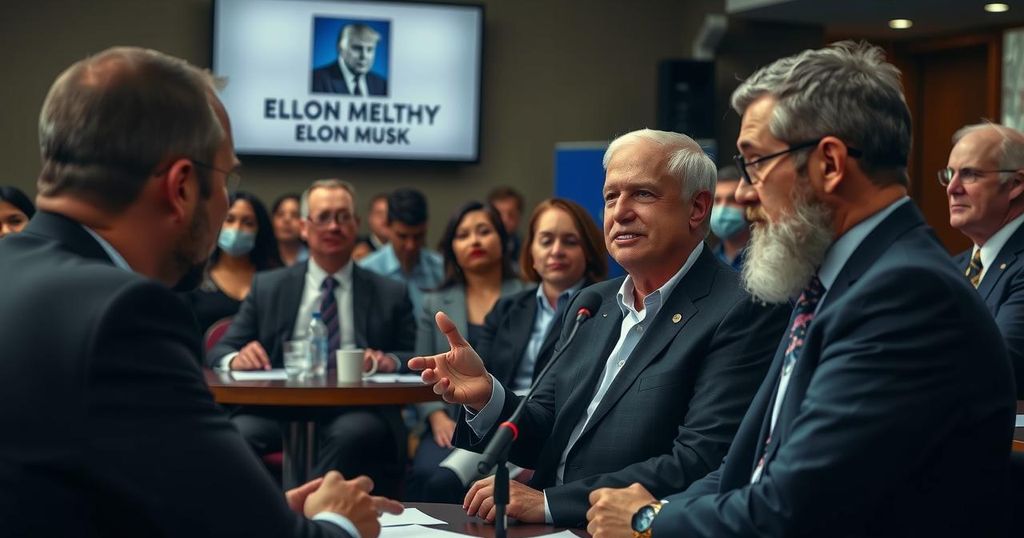Election Officials Challenge Musk’s Misinformation on X

Election officials are confronting Elon Musk’s misleading posts on X, highlighting the disparity in engagement between his inaccuracies and their responses. Despite efforts to debunk misinformation regarding election integrity, officials find their challenges exacerbated by Musk’s substantial following. Experts express concerns over the impact of this misinformation on democratic processes, emphasizing the distractions faced by election officials in addressing the issue.
Election officials are increasingly confronting Elon Musk over misleading posts on X, formerly known as Twitter, particularly regarding claims of election fraud in Virginia. On a recent evening in Henrico County, Registrar Mark Coakley encountered a repost from Musk which falsely alleged that election integrity leaders had discovered fraudulent votes in the county from the 2020 election. Although Coakley swiftly refuted this claim through the county’s official X account, his counterpost received substantially fewer views compared to Musk’s original, highlighting the significant disparity in reach. In a similar instance in Philadelphia, Commissioner Seth Bluestein attempted to challenge Musk’s participation in spreading misinformation regarding voter registration, yet his rebuttal similarly fell short in engagement. Notably, even some Republican officials have attempted to engage Musk about these inaccuracies, yet the general consensus among experts is that Musk’s use of X allows him to wield undue influence over public discourse around elections. Sam Woolley, a disinformation researcher, noted that Musk is using his platform as a means to promote political allies while spreading potentially damaging misinformation. This concern is echoed by Larry Norden, who indicated that the distractions brought about by Musk’s posts detract from the vital responsibilities of election officials. In a rare case, Michigan Secretary of State Jocelyn Benson was able to match Musk’s engagement, effectively countering his disinformation regarding voter registration numbers with her own fact-based response.
The rise of misinformation on social media platforms, particularly X, has emerged as a critical concern for election officials tasked with maintaining the integrity of the electoral process. Following Elon Musk’s acquisition of the platform, instances of misinformation regarding elections have increased, often amplified by his vast following. This has led to significant challenges for election officials, who find themselves compelled to address and refute misleading claims, diverting their attention from essential duties associated with administering elections. The disparity in audience reach between Musk and election officials underscores the uphill battle that these officials face, compelling them to navigate a complex landscape of public discourse saturated with misinformation.
In conclusion, the troubling trend of misinformation perpetrated by influential figures like Elon Musk poses significant challenges for election officials, who are often overwhelmed by the need to counteract such claims. The vast difference in engagement levels between Musk’s posts and the responses from election officials illustrates an ongoing struggle to disseminate factual information in a landscape dominated by misinformation. As professionals like Jocelyn Benson demonstrate, however, it is possible for informed rebuttals to gain traction. Nevertheless, the consistent engagement of election officials with falsehoods hampers their primary responsibilities and threatens the overall integrity of democratic processes.
Original Source: abcnews.go.com








